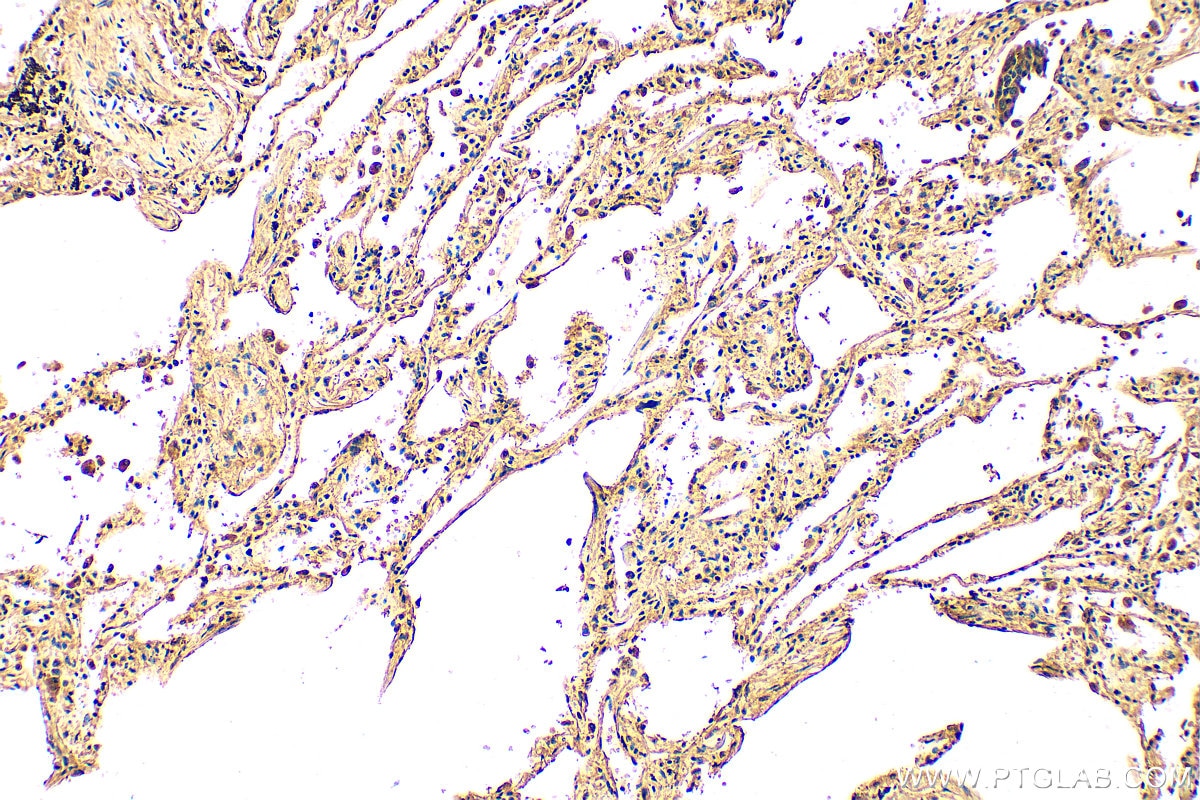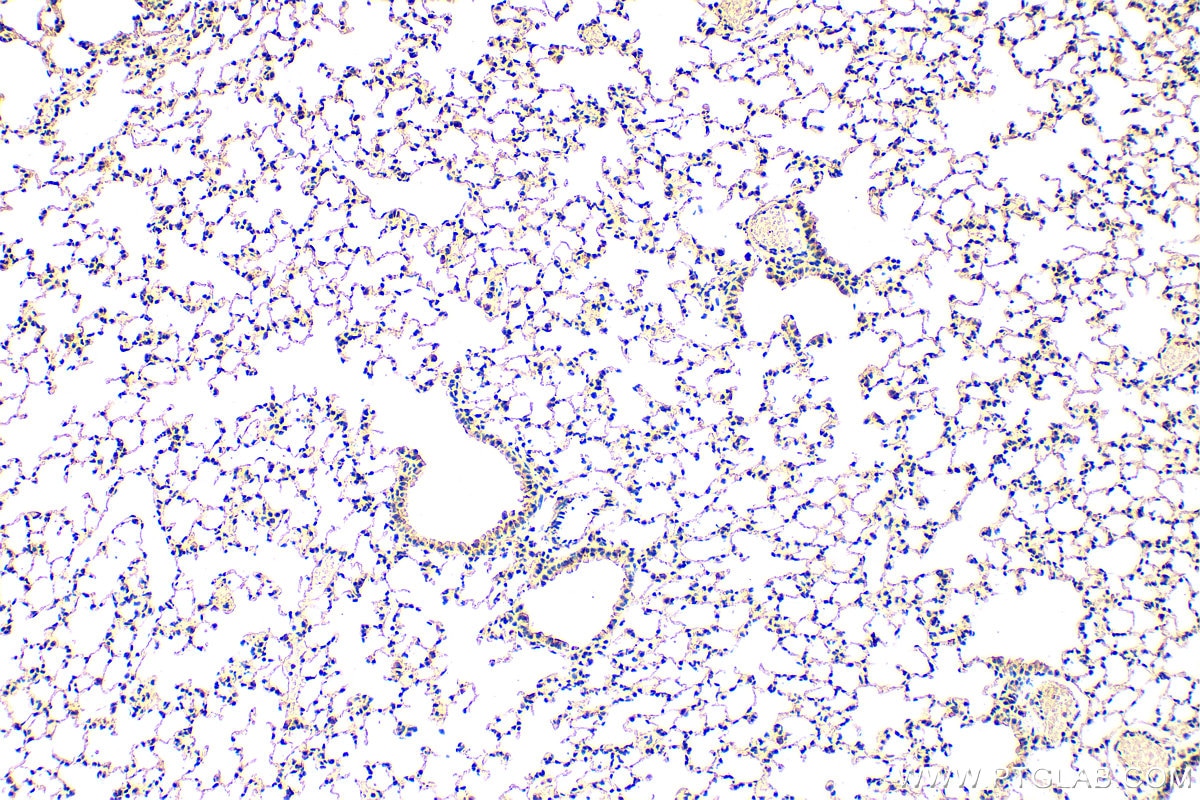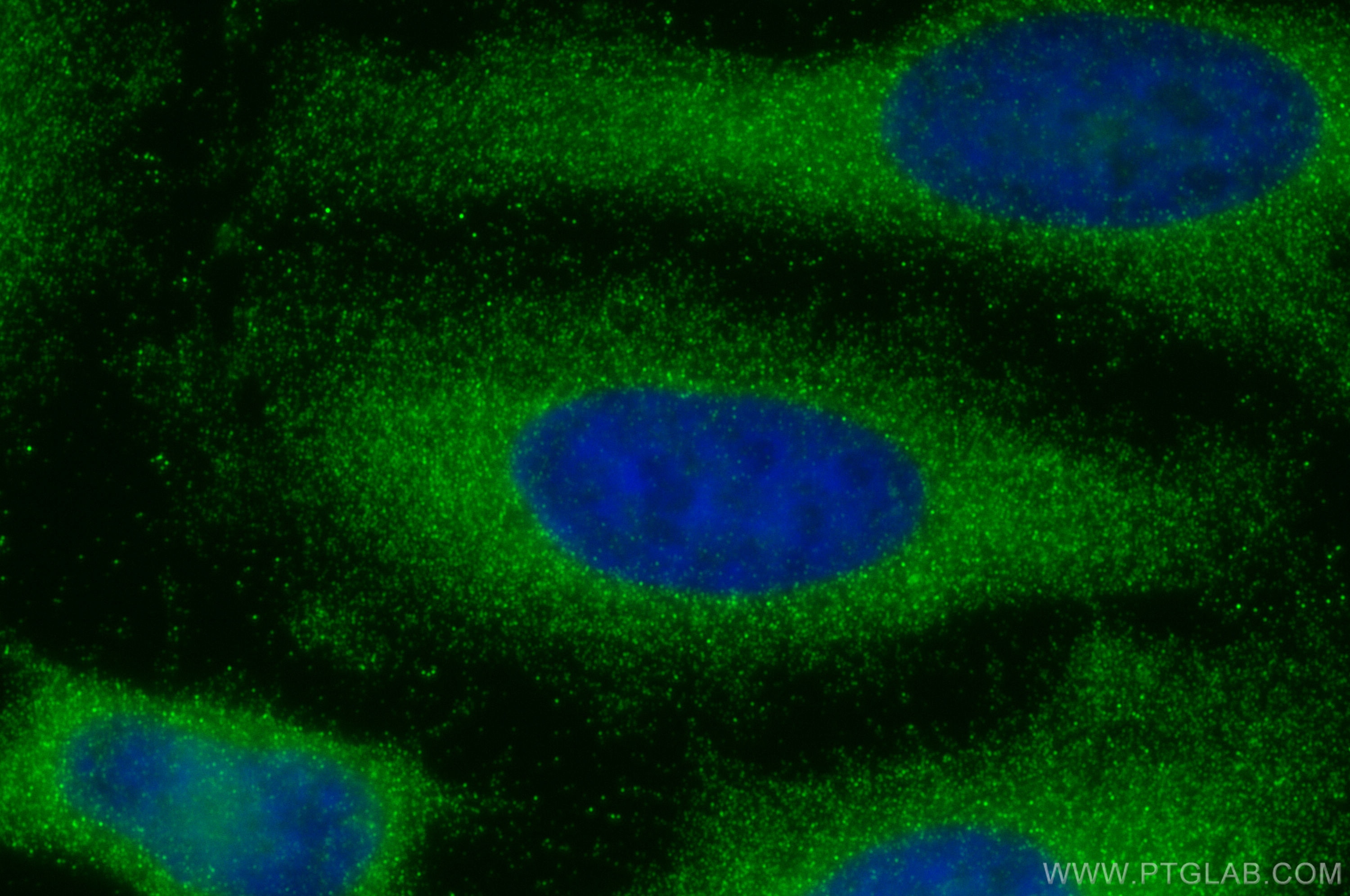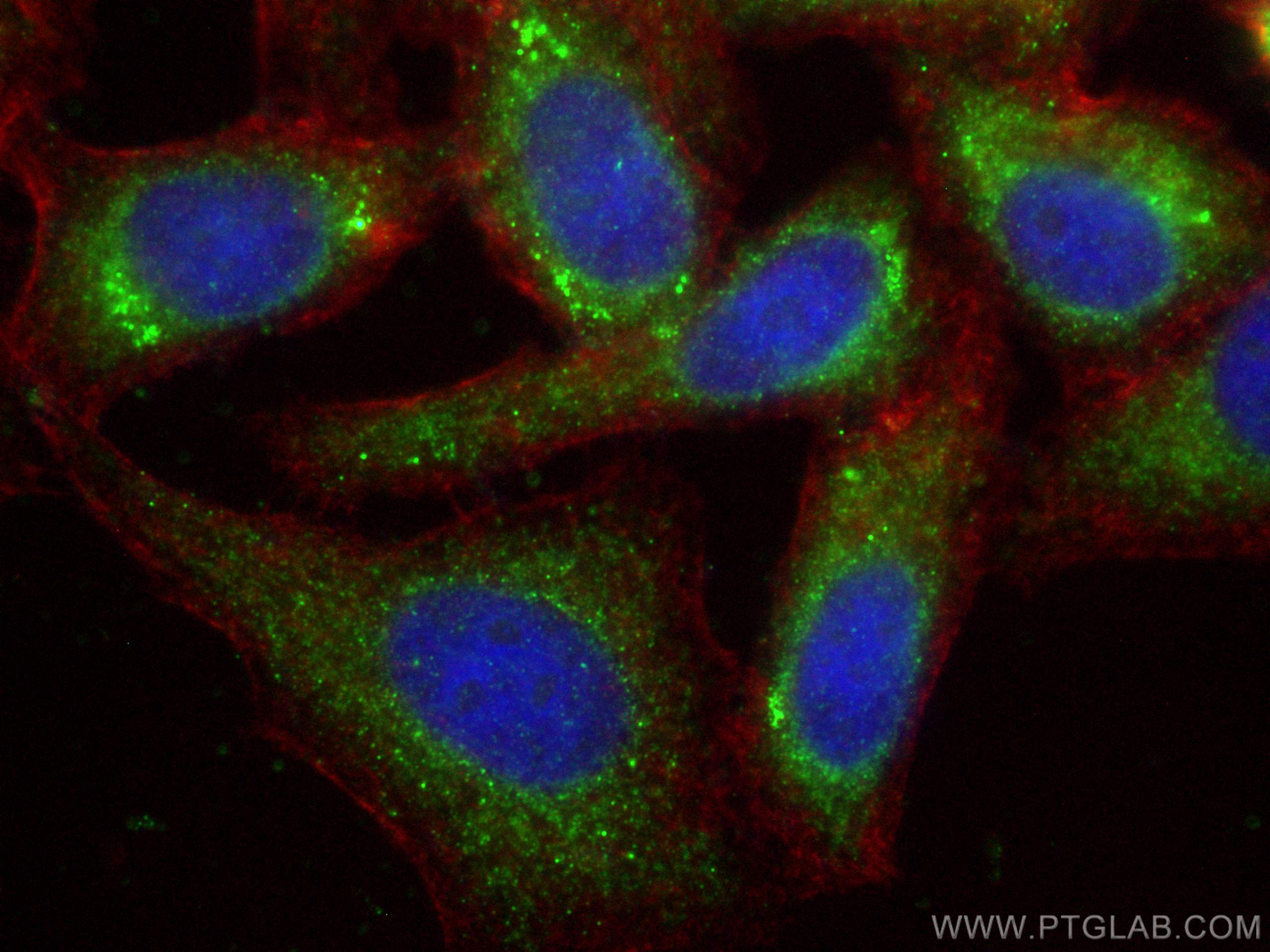Anticorps Polyclonal de lapin anti-DNAH5
DNAH5 Polyclonal Antibody for IHC, IF/ICC, ELISA
Hôte / Isotype
Lapin / IgG
Réactivité testée
Humain, souris
Applications
IHC, IF/ICC, ELISA
Conjugaison
Non conjugué
N° de cat : 31079-1-AP
Synonymes
Galerie de données de validation
Applications testées
| Résultats positifs en IHC | tissu pulmonaire humain, tissu pulmonaire de souris il est suggéré de démasquer l'antigène avec un tampon de TE buffer pH 9.0; (*) À défaut, 'le démasquage de l'antigène peut être 'effectué avec un tampon citrate pH 6,0. |
| Résultats positifs en IF/ICC | cellules HeLa, cellules HepG2 |
Dilution recommandée
| Application | Dilution |
|---|---|
| Immunohistochimie (IHC) | IHC : 1:50-1:500 |
| Immunofluorescence (IF)/ICC | IF/ICC : 1:50-1:500 |
| It is recommended that this reagent should be titrated in each testing system to obtain optimal results. | |
| Sample-dependent, check data in validation data gallery | |
Informations sur le produit
31079-1-AP cible DNAH5 dans les applications de IHC, IF/ICC, ELISA et montre une réactivité avec des échantillons Humain, souris
| Réactivité | Humain, souris |
| Hôte / Isotype | Lapin / IgG |
| Clonalité | Polyclonal |
| Type | Anticorps |
| Immunogène | DNAH5 Protéine recombinante Ag34647 |
| Nom complet | dynein, axonemal, heavy chain 5 |
| Masse moléculaire calculée | 529 kDa |
| Numéro d’acquisition GenBank | NM_001369 |
| Symbole du gène | DNAH5 |
| Identification du gène (NCBI) | 1767 |
| Conjugaison | Non conjugué |
| Forme | Liquide |
| Méthode de purification | Purification par affinité contre l'antigène |
| Tampon de stockage | PBS with 0.02% sodium azide and 50% glycerol |
| Conditions de stockage | Stocker à -20°C. Stable pendant un an après l'expédition. L'aliquotage n'est pas nécessaire pour le stockage à -20oC Les 20ul contiennent 0,1% de BSA. |
Informations générales
Dynein axonemal heavy chain 5 (DNAH5) is an axonemal heavy chain dynein, part of a microtubule-associated motor protein complex. DNAH5 is a large gene comprising 79 exons and one alternative first exon and encodes a heavy chain of the ODA. We have recently shown that recessive DNAH5 mutations are responsible for PCD characterized by ODA defects. DNAH5 mutations cause PCD and randomization of left-right asymmetry (PMID: 15750039).
Protocole
| Product Specific Protocols | |
|---|---|
| IHC protocol for DNAH5 antibody 31079-1-AP | Download protocol |
| IF protocol for DNAH5 antibody 31079-1-AP | Download protocol |
| Standard Protocols | |
|---|---|
| Click here to view our Standard Protocols |





